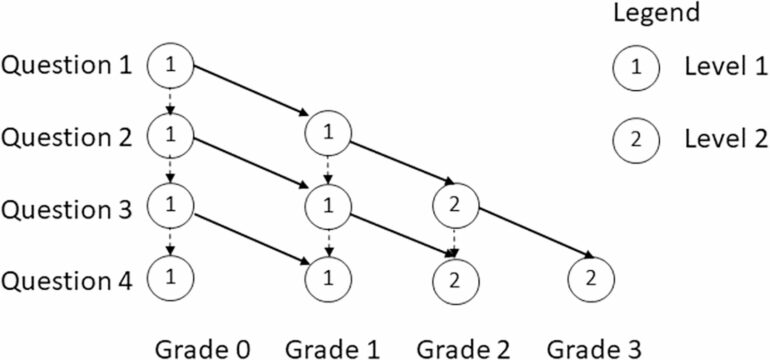According to a study by the Universitat Oberta de Catalunya (UOC), the Eurecat technology center and the Autonomous University of Madrid, published in PLOS ONE, students worked more continuously during the pandemic, which led to an improvement in their results.
The data analysis conducted over five academic years shows that continuous study, i.e. study beginning at least three months before examinations, is the best method for achieving good grades. This means that identifying how students are studying helps to predict their future performance.
The authors of the study used artificial intelligence (AI) to predict the results well in advance, enabling them to help students who were potentially going to achieve poor results. As they were warned in advance, the students were able to review their preparation methods and change their learning strategies if they were not productive. It also enabled the teaching staff to identify bad practices both during learning and, later, in examinations, since it detected both copying and cases of plagiarism.
“UNESCO declared the importance of AI in education in 2019,” said the lead researcher, Laia Subirats, a course instructor with the UOC’s Faculty of Computer Science, Multimedia and Telecommunications, and a research advisor in the ADaS Lab group at the UOC’s eHealth Center and a researcher at Eurecat. “In this study, we show that it can be used to prevent bad practices when studying and to identify unusual results that may be concealing misconduct, such as plagiarism.”
The study is based on an analysis of the exercises done by 396 students on the Applied Computer Science course on the bachelor’s degree in Chemical Engineering program at the Autonomous University of Madrid with the e-valUAM adaptive learning tool. This e-learning platform presents tests with questions that vary depending on whether the answers given are correct or not.
Based on the results of these tests, the research showed that AI can be used to help students to plan their study methods better. “AI can help continuous learning in various ways,” Subirats explained. “In addition to detecting poor study strategies and bad practices, it can also personalize the pace of learning, provide personalized feedback through smart tutors, and answer questions by means of educational chatbots.”
Three learning profiles
In the data analysis, the students were classified into three groups according to how they studied and the results they achieved: those who work continuously, those who leave it to the last minute, and those obtaining poor results in general. The continuous study group achieved the best results. As a result, the authors of the study argue that strategies to encourage this practice should be sought.
During the lockdown, among other things, face-to-face classes were replaced and teachers assigned more activities to do at home, which encouraged students to work more continuously. The researchers point out that alternative mechanisms must now be sought to maintain the more consistent working method that was adopted during the months when the students were unable to leave their homes.
According to Laia Subirats, there are various tools to help students to study continuously, such as providing educational resources, constant feedback, collaborative learning and gamification. “Some examples that encourage continuous study are establishing study goals and routines, learning collaboratively by interacting with the teacher and peers, doing practicals or similar exercises, writing the information in the students’ own words, studying out loud and applying mnemonic techniques,” she explained.
Getting students to use these strategies and helping them with tools such as AI is the aim put forward by this study to encourage more consistent work and, as a result, better performance.
More information:
Laia Subirats et al, Temporal analysis of academic performance in higher education before, during and after COVID-19 confinement using artificial intelligence, PLOS ONE (2023). DOI: 10.1371/journal.pone.0282306
Provided by
Universitat Oberta de Catalunya
Citation:
AI study finds the habit of continuous study was more widespread during lockdown (2023, May 30)



